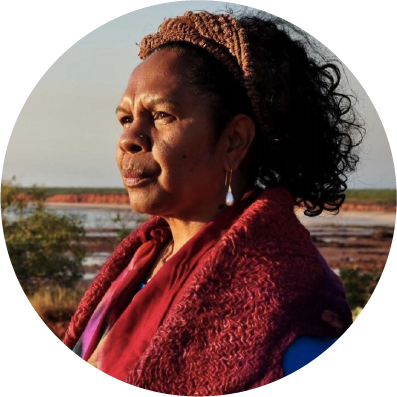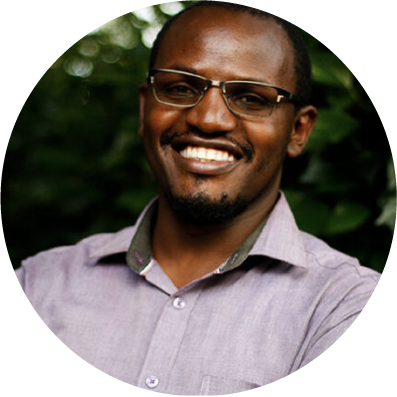17th - 18th June 2021
In 2020 a tipping point may have been crossed on how societies worldwide deal with multiple overlapping crises. On an unprecedented scale we see groups and communities mobilizing to re-imagine and transform the pre-pandemic systems which led to current vulnerabilities, risks, and unsustainable practices. This challenging but also fertile moment calls for urgent knowledge synthesis able to enact positive tipping points and tipping interventions towards new regenerative development trajectories.
Keynote Speakers
Jessica Clark - Research affiliate at MIT Open Documentary Lab, publisher of Immerse.news
Building Equitable Media for Regenerative Futures
Kate Raworth - Co-founder of Doughnut Economics Action Lab
Transforming Economics for 21st Century Realities
Ailton Krenak - Philosopher and indigenous movement leader of Krenak ethnicity, Brazil
Tomorrow is Not for Sale
Heila Lotz-Sisitka - Distinguished Professor at Rhodes University
Transgressive Learning and Governance (TBC)
Program
Our global virtual conference was held 17th-18th of June.
Thank you to all who participated!
The full program is also available on tinyurl.com/transformations2021.
This link takes you to the SRI conference page where you can sign in and view both the SRI conference and the Transformations Conference.
Thematic Areas
The TRANSFORMATIONS 2021 Conference showcased the latest developments in research and practice of transformations towards sustainability, support and celebration of transdisciplinary learning networks for new collective international initiatives.
Four streams will structure the event:
· Stream 1: Transformative arts and culture
· Stream 2: Transformative economies and organizations
· Stream 3: Transformative science, action-oriented knowledge and governance
· Stream 4: Enabling positive tipping points in socio-climate, energy, water and life-support coupled systems
*Click here for more details on each stream
The final program included contributions on:
· Arts, design and cultural transformations
· Transformations theories and ethics
· Systems of transformative solutions
· Gender, race and converging inequalities
· Activism and governance
· Digitalisation and emerging technologies
· Alternative economies
· Transforming financial systems and organizations
· Community development and international cooperation
· Catalytic processes of 2020
· Integrated and pluralistic learning
· Synthesis and review papers on transformations
Co-creative sessions
Tipping points are inevitable. A central question is how transformative trajectories towards sustainability can be consolidated into practices, norms and institutions. Leading scholars and practitioners particpated in these 4 live co-creative sessions to explore together perspectives from four continents on social movements, narratives and decolonization, social unrest and constitutional processes, regeneration and reconciliation. The Transformations Conference 2021 Co-Creative Sessions explored political agency and new politics of transformations.
South America
June 17th 6:00 PM CEST
Social unrest in Latin America: A tipping point opportunity for transformation
The South American Co-Creative session focuses on two inspiring cases of social tipping points, Chile and Colombia. In Chile the “estallido social” (social outbreak) demanding dignity, equity, and social justice, and in Colombia massive street mobilizations due to the discontent with government policies, including the poor implementation of the peace agreement. This co-creative session will focus on the constitutional process as a window of opportunity for establishing new transformative trajectories. We will hear first-hand from those involved in the process in Chile and Colombia. We will also hear from Guðrún Pétursdóttir, the Chair of the Icelandic Constitutional Committee and the popular participation in the reform of the Constitution following the economic break-down in 2008.
In presenting these practical cases, this co-creative session will move from practice to theory and then from theory to practice and is hence an invitation to transformations scholars to develop a theoretically informed perspective on these processes, the current situation, and ideas that can be useful for social actors for writing the future that has been triggered by strong social demands and unrest.
GUIDING CO-CREATIVE QUESTION:
Which theoretical lenses are helpful to understand these cases and what concrete ideas from theory can put forward to practitioners engaged in these unfolding transformative processes?
CONVENERS: Paulina Aldunce and Diego Galafassi
With contributions by:
The peace agreement in Colombia - María Victoria LLorente, Fundación Ideas para la Paz
The “estallido social” (social outbreak) in Chile - Paulina Aldunce, University of Chile
Rewriting the Icelandic Constitution -Guðrún Pétursdóttir, Chair of the Constitutional Icelandic Committee
Writing a new Constitution in Chile - Valentina Rosas, Tenemos que hablar de Chile
Paulina Aldunce
Diego Galafassi
María Victoria LLorente
Guðrún Pétursdóttir
Valentina Rosas
North America
June 17th 9:00 PM CEST
How do street protests scale for transformation?
In October 2019, the Transformations Community met in Santiago, Chile for our last biannual conference to share ideas about how to catalyze transformative systems change. Ironically, over the course of the conference transformative change was taking place right around us in Santiago. Starting from a small Twitter-spread youth protest, a broad-based mass-movement emerged that shook Chilean society to its political and economic core and created an opportunity to challenge the neoliberal social order through constitutional reform. Many of us didn’t even notice what was happening until we emerged from a reception at an art museum to see student rioters in the streets. The next day, the non-Chilean participants were advised to shelter in our hotel rooms and leave the country as soon as possible. For those who did, they missed something they had been trying to find for years - as told in the Latin American co-creative session immediately preceding this one, these protests scaled rapidly to initiate a relatively bloodless and rapid transformative reform that had been frustrated in the many decades since the Dictator Augusto Pinochet left power.
In this co-creative session, we complement the close look at constitutional strategies in the Latin American co-creative session to focus on human agency at the street level. Reflecting on these events and other (Lebanon, Syria, Hong Kong, Brazil, Egypt, the U.S. and more), we ask:
What enables street protest to scale up to a systems-changing movement without reliance on deliberate strategy or organized leadership?
In addition to exploring how protest strategies can catalyze systems change, we consider why the Transformation community is mostly disinterested – and occasionally even oblivious - in the transformative potential of street movements. What does it say about us that we restrict our interest in transformative practices to activities that can take place in meeting rooms, or within the safe confines of a government-funded projects or Foundation-supported initiatives?
CONVENER: Bruce Goldstein, University of Colorado Boulder
With contributions by:
Anton Törnberg, University of Gothenburg: From grassroots mobilization to radical transformative change
Ravi S. Kudesia, Temple University: How Strategy Emerged from Protest Crowds in Ferguson: The First 48 Hours
Jota Samper, University of Colorado Boulder: Eroding resilience in self-organized communities: Learning from the last fifty years of informal settlements and conflict in Medellín, Colombia.
Asia and Oceania
June 18th 5:00 AM CEST
Transforming narratives of place in Australia: Towards a tipping point?
The most radical transformation in Australian history took place in 1788 when the British Empire laid claim to the island continent with no regard for the rich tapestry of Indigenous nations already living there. Tens of thousands of years of Aboriginal history, and the violent colonisation and subjugation that followed, were long buried in Australian narratives of place.
The purpose of this co-creation session is to explore how Australian narratives of place are transforming and what this tells us about the theory and practice of transformation in action. We will hear from several speakers about the narrative shifts they have been observing and their potential for positive transformation, from fields such as, regenerative agriculture, Earth-centred law and governance and new economics. We will then hear reflections from Indigenous speakers about the transformations they are witnessing, and what this means from their perspectives. Then, with help from participants, we will facilitate an interactive process to connect the Australian experience with other local narratives of place. Together, we will ask what these narrative transformations can tell us about the general dynamics of narrative transformation around the world.
CONVENERS: Chris Riedy, Michelle Maloney and Sam Wearne
With contributions by: Anna Poelina
Chris Riedy
Michelle Maloney
Sam Wearne
Anna Poelina
Africa
June 18th 11:00 AM CEST
‘Philosophical Underpinnings’ in decolonizing research methods for transformation towards sustainability
In contributing to the decoloniality imperative, the session focuses on different ontological and epistemological perspectives associated with decolonizing methodologies. The session will involve a brief introduction on the concept of decolonizing methods for sustainability research to transformation, followed by a tripartite (academia/research, practice/practitioners, policy) engagement to: i) explore what philosophical underpinnings in sustainability research means in the various contexts; ii) define the implications of decolonizing the dominant narratives that are associated with the cultural diversity in the way knowledge is generated, used, and passed; iii) develop indicators for practice and policy in decolonizing how evidence in the space may be applicable; and iv) deliver a three-point research agenda for decolonizing research towards transformation sustainability (anchored in the philosophical development of research and practice)
CONVENERS: Joanes Atela, Joel Onyango
With contributions by: Andrew Stirling, Laura Pereira, Nadia Sitas, and Jessica Cockburn
Joanes Atela
Joel Onyango
Europe
June 18th 1:00 PM CEST
Political Agency for Transformations: What Does it Take?
When it comes to global sustainability, there is no lack of agendas, roadmaps, blueprints, targets, and indicators. What is missing is an understanding of how transformative change actually comes about, especially in the face of active, multiscale resistance to transforming systems and structures in an equitable and sustainable manner. In this co-creative session, we will explore the qualities of political agency that are considered to be important, yet often overlooked in discussions about sustainability. A series of schort interventions from participants will highlight what matters when it comes to political agency. Break-out group discussions will offer participants an opportunity to contribute to a “top-five” list of qualities that define political agency within the context of transformations to sustainability.
CONVENERS: Karen O’Brien and Indra Adnan
With contributions by: Enock Nkulanga and Manjana Milkoreit
Karen O’Brien
Indra Adnan
Enock Nkulanga
Manjana Milkoreit
FAQ
Conference 2021 International Team
CONFERENCE CONVENERS:
J. David Tàbara - Global Climate Forum, Berlin, Germany, & Autonomous University of Barcelona
Diego Galafassi - Lucsus, Lund University & Founder Hum Studio Interactive, Personal Website
Susana Fernandez - Conference Coordinator
INTERNATIONAL TRANSFORMATIONS COMMITTEE:
Niki Frantzeskaki - Centre for Urban Transitions, Swinburne University of Technology, Melbourne, Australia
Marco Grasso - Università degli Studi di Milano-Bicocca, Italy
Katharina Hölscher - DRIFT, The Netherlands
Asun Lera St. Clair - Det Norske Veritas (DNV GL) - Group Technology and Research, Norway & Barcelona SuperComputing Center, Earth Sciences Services
Diana Mangalagiu -Smith School of Enterprise and Environment, University of Oxford, Reims Management School in France, Sciences Po, Paris & Global Climate Forum, Berlin, Germany
Takeshi Takama- CEO: Su-Re.Co (Sustainability & Resilience) Associate Stockholm Environment Institute, DPhil (Oxford) Udayana University, Bali
Steve Waddell - Co-Lead - SDG Transformations Forum
THE ONLINE TRANSFORMATIONS 2021 CONFERENCE IS SUPPORTED BY THE EU FUNDED PROJECT TIPPING+ (Enabling Positive Tipping Points towards clean-energy transitions in Coal and Carbon Intensive Regions, GA n. 884665) and in particular by the following project members:
Jeremie Fosse - Eco-union & Global Eco Forum
Laia Segura - EcoUnion
Serafeim Michas - Technoeconomics of Energy Systems laboratory (TEESlab) University of Piraeus Research Center
Zois Katiforis - Technoeconomics of Energy Systems laboratory (TEESlab) University of Piraeus Research Center































